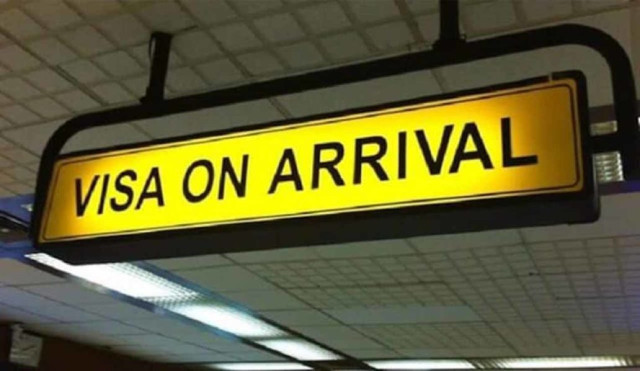The federal government has revealed its intentions to abolish the Visa-on-Arrival policy, emphasizing that “it is not effective.”
This announcement was made by the Minister of Interior, Dr. Olubunmi Tunji-Ojo, during the conclusion of a week-long training program on Advanced Passenger Information (API) and Passenger Name Record (PNR) Data at the Nigeria Immigration Service (NIS) headquarters in Abuja on Friday.
Tunji-Ojo stated that the Visa-on-Arrival system has failed to manage migration and secure the nation's borders.
He noted that individuals of concern have attempted to circumvent the new systems established at Nigeria’s five international airports, highlighting that intelligence indicates these individuals now travel through neighboring countries to enter Nigeria via its extensive land borders.
“What the API and PNR provide us is objectivity in decision-making, allowing for objective profiling as opposed to subjective profiling. What existed was subjective. The visa is a fundamental component because I always inform people that a visa is not merely an entry approval; it serves as a tool for managing migration. It is a security mechanism for regulating migration into our country,” Tunji-Ojo remarked.
He also announced plans for the introduction of an e-visa system, which is anticipated to launch by March 1, or by April 1 if there are delays.
He explained that this system will connect with Interpol’s criminal records database to enable authorities to screen visa applicants more efficiently.
He stated, “Currently, the process is very subjective. We are not sufficiently objective, which is why we are working to automate the entire procedure from beginning to end. We are striving to launch the e-visa solution by the first of March, or if we encounter setbacks, by the first of April, we will go live.
“We will automate the system. Applicants will submit their requests online, and we will do what is necessary. This solution will be linked to the Interpol system and criminal records system, allowing us to make informed choices. We do not want foreign attachés to be in charge of approving and issuing visas. That will no longer happen. We aim to screen individuals more rigorously.
“Nigeria cannot serve as a refuge for wanted criminals around the globe. Our country will not be a safe haven for any criminal, and it shall never be.”
He elaborated that for expatriates, the government is focused on integrating all immigration solutions, unifying databases, and ensuring various systems communicate instead of functioning independently.
He added, “We seek integrated solutions. Any immigration decision regarding entry into Nigeria must receive clearance from Interpol, the criminal records system, and all relevant background-checking agencies in real-time. In security, one cannot afford to be 99.9% accurate.
As part of the revised policy, he indicated, “Individuals must complete the landing card, which will be integrated with the visa and passport systems, and then connected to all worldwide background-checking systems prior to entry.”




















